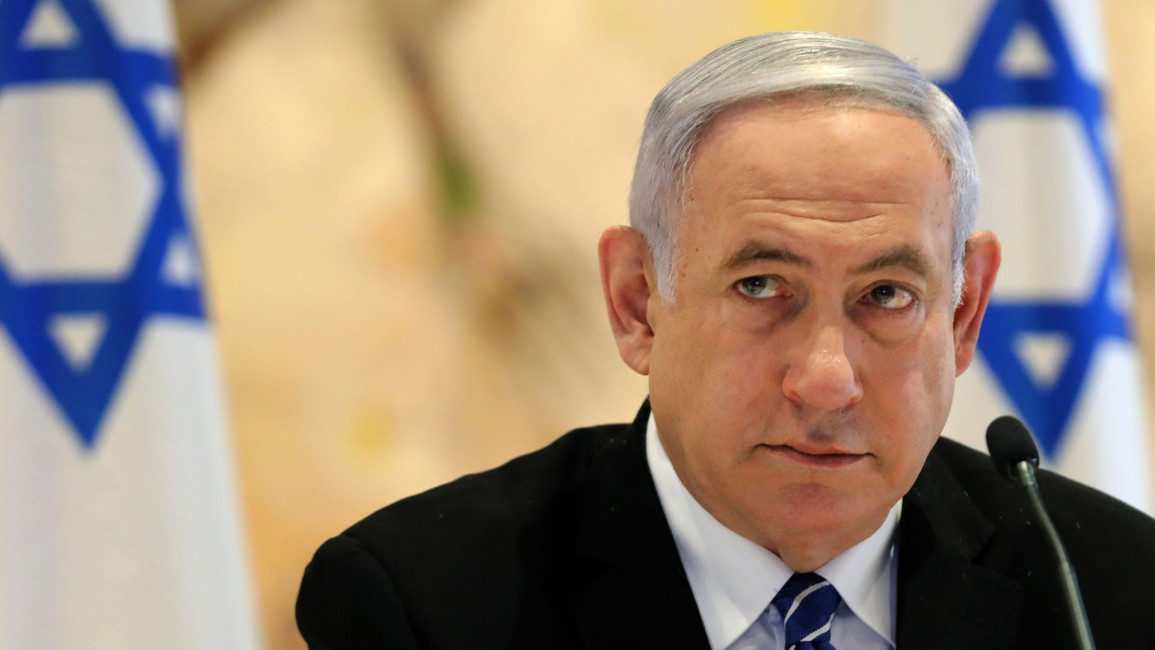Sudan, Israel agree on opening embassies 'soon' following normalisation deal
Sudan, Israel agree on opening embassies 'soon' following normalisation deal
According to a source, Israel's visit to Sudan took the two countries one step closer to opening embassies in respective countries.
2 min read
They reportedly agreed to open embassies [Getty]
Israel's Intelligence Minister Eli Cohen's visit to Khartoum appears to have brought Sudan and Tel Aviv closer together, with whispers that the two could soon open reciprocal embassies.
"The Israeli minister arrived in Khartoum Monday evening on a short unannounced visit, and held two separate meetings with Chairman of the Sovereignty Council, Abdel Fattah Al-Burhan, and Defence Minister Yassin Ibrahim Yassin to activate relations and exchange opening embassies," Anadolu Agency quoted an anonymous source, as saying.
The source added that "the Israeli minister's visit to Khartoum is aimed at strengthening bilateral relations between the two countries in various fields".
"Al-Burhan and Cohen agreed on reciprocal opening of embassies in the two countries as soon as possible," the source concluded.
Monday's visit was the first time an Israeli minister headed a delegation to the African state, Cohen's office said.
"A first-ever memorandum on these topics was signed between the Sudanese defence minister and Cohen," it said.
The sides also discussed "deepening intelligence cooperation".
"The Sudanese authorities briefed the Israeli delegation on their progress on cancelling the law boycotting Israel, and amending the law imprisoning Sudanese migrants, including to Israel, who return to Sudan," the ministry added.
Neither Sudan nor Israel have said they will open embassies in their respective countries, however it is likely it will happen soon.
Sudan was the latest country to normalise relations with Israel.
On 6 January, Sudan signed the "Abraham Accords" normalising ties with Israel, making it the third Arab country to do so after the UAE and Bahrain last year.
The move prompted mass opposition from civilians and senior political figures, and people took to the streets of Khartoum to protest.
The normalisation efforts come after Sudan was removed from a US blacklist late last year following a rocky transition period after the army toppled dicator Omar Al-Bashir in 2019.
In December, Washington removed Khartoum from its blacklist as part of a quid pro quo for the East African country normalising ties with Israel.
Finance Minister Hiba Ali said Sudan "will take full advantage of all the opportunities created by Sudan's removal from the terror list which includes openness to the international financial system, and influx of foreign investments".
"The Israeli minister arrived in Khartoum Monday evening on a short unannounced visit, and held two separate meetings with Chairman of the Sovereignty Council, Abdel Fattah Al-Burhan, and Defence Minister Yassin Ibrahim Yassin to activate relations and exchange opening embassies," Anadolu Agency quoted an anonymous source, as saying.
The source added that "the Israeli minister's visit to Khartoum is aimed at strengthening bilateral relations between the two countries in various fields".
"Al-Burhan and Cohen agreed on reciprocal opening of embassies in the two countries as soon as possible," the source concluded.
Monday's visit was the first time an Israeli minister headed a delegation to the African state, Cohen's office said.
"A first-ever memorandum on these topics was signed between the Sudanese defence minister and Cohen," it said.
The sides also discussed "deepening intelligence cooperation".
|
"The Sudanese authorities briefed the Israeli delegation on their progress on cancelling the law boycotting Israel, and amending the law imprisoning Sudanese migrants, including to Israel, who return to Sudan," the ministry added.
Neither Sudan nor Israel have said they will open embassies in their respective countries, however it is likely it will happen soon.
Sudan was the latest country to normalise relations with Israel.
On 6 January, Sudan signed the "Abraham Accords" normalising ties with Israel, making it the third Arab country to do so after the UAE and Bahrain last year.
The move prompted mass opposition from civilians and senior political figures, and people took to the streets of Khartoum to protest.
The normalisation efforts come after Sudan was removed from a US blacklist late last year following a rocky transition period after the army toppled dicator Omar Al-Bashir in 2019.
In December, Washington removed Khartoum from its blacklist as part of a quid pro quo for the East African country normalising ties with Israel.
Finance Minister Hiba Ali said Sudan "will take full advantage of all the opportunities created by Sudan's removal from the terror list which includes openness to the international financial system, and influx of foreign investments".



